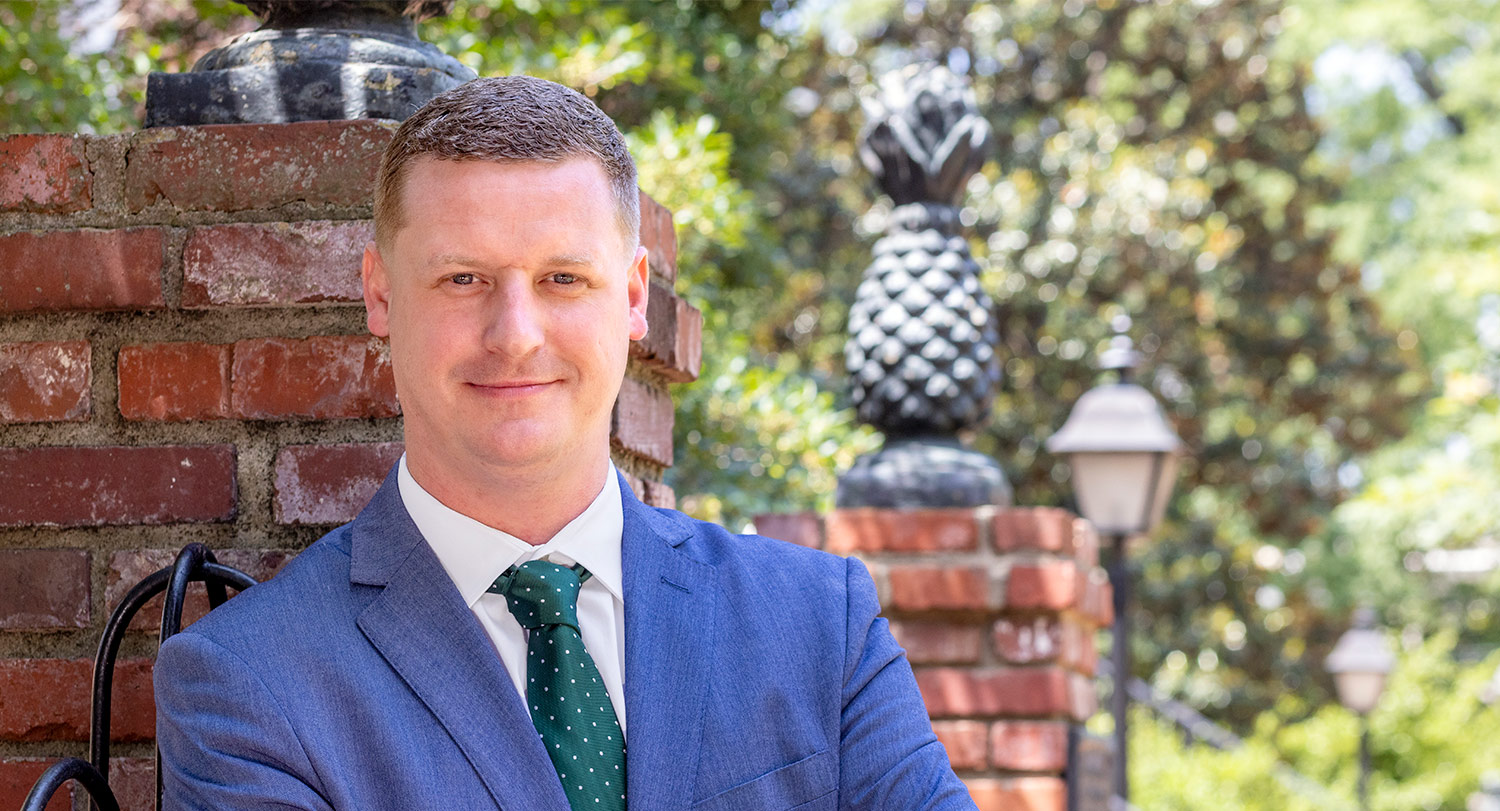
Zachary Winkelmann felt a connection to teaching from a young age — it just took him a few years to decide to follow that path.
Growing up in Houston, he taught English as a Second Language classes through his church and tutored young children in reading as a high school job. As an undergraduate studying athletic training at Texas Lutheran University, he was tapped by his anatomy professor to be a supplemental instructor, a position he held for his sophomore through senior years.
“I remember I had a professor come by and say, ‘Have you ever thought about maybe going into teaching?’” And I said, ‘No, I like health care. That’s what I want to do.’ And he said, ‘OK, but you’ve just got a knack for it,’” Winkelmann says. “I still remember that to this day.”
Winkelmann went on to continue his studies of athletic training in graduate school at Indiana State University, where he earned his master’s while working with the men’s basketball team and serving as a preceptor at a clinical site. And while he enjoyed the hands-on athletic training, the idea of teaching came more clearly into focus.
“I'm teaching people how to be a health care provider, but also influencing people on how to think differently about what we do.”
“I started to see the overlap of teaching and athletic training,” he says. “I think the biggest thing for me was realizing that your reach with patient care (as an athletic trainer) is sometimes smaller — I can only teach the people that come in for health care. But every student that I teach is then going to take care of many patients. Essentially, I'm helping influence all of their patients’ care. That was the main reason I shifted and transitioned into teaching.”
After earning his Ph.D. in curriculum and instruction from Indiana State, he started teaching in the athletic training program in the Arnold School of Public Health in August 2019. Winkelmann is the 2025 recipient of the University of South Carolina’s clinical practice teaching award, which recognizes a faculty member for outstanding clinical teaching, practice, advising and mentoring of health science students.
“I love USC. We have both a professional and post-professional athletic training program, and I get to teach in both,” he says. “I'm teaching people how to be a health care provider, but also influencing people on how to think differently about what we do.”
When he started college in 2009, students typically earned a bachelor’s degree in athletic training. That has changed to line up with other health care fields — such as physicians assistants and genetic counselors — where students earn a master’s degree before entering the profession. For athletic trainers, a bachelor’s degree is typically earned in a health care area such as exercise science or kinesiology.
As a clinical assistant professor in the exercise science department, Winkelmann guides his students to understand details of the coursework along with thinking about the needs of each individual they treat.
“It’s helping them realize that these are more than athletes. They're people,” he says. “So treat them as a person, not just a person that needs to go back out and play an inning of baseball.”
Winkelmann says he values hands-on learning, using plenty of simulation-based learning in his classroom that makes situations as real as possible for students. He believes education should be an engaging experience that prepares students for the challenges they will face in the real world. And he works hard to create a learning environment in which “students feel empowered to explore new ideas, advocate for change and develop critical thinking skills.”
“I think that is what's preparing our graduates so well,” he says. “We've had a lot of employers reach out and say these students are confident and they're capable. We're not just giving them the lecture, but we’re getting in there and saying, ‘Yeah, you passed CPR certification, but can you actually do it now for five minutes straight?’ And the students say, ‘Wow, that was exhausting.’ Yeah, but now you know that in the real world, when you have to do it, you’ll know what to expect.”
He says making sure students understand the implications of their training is a lesson many don’t fully grasp until they graduate and start their careers. Then Winkelmann starts to get the texts and the emails.
“I got one this past week from a recent grad that was like, ‘I just had my first shoulder dislocation. And I remembered from your class all the stuff you taught me, and it worked.’ I think those are the moments that I live for as a teacher.”